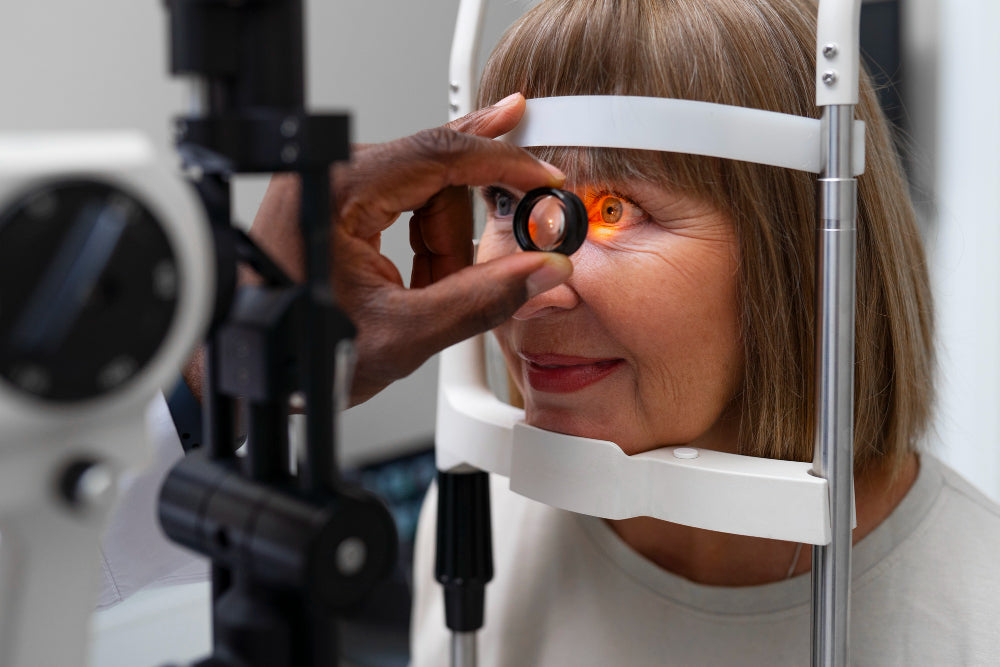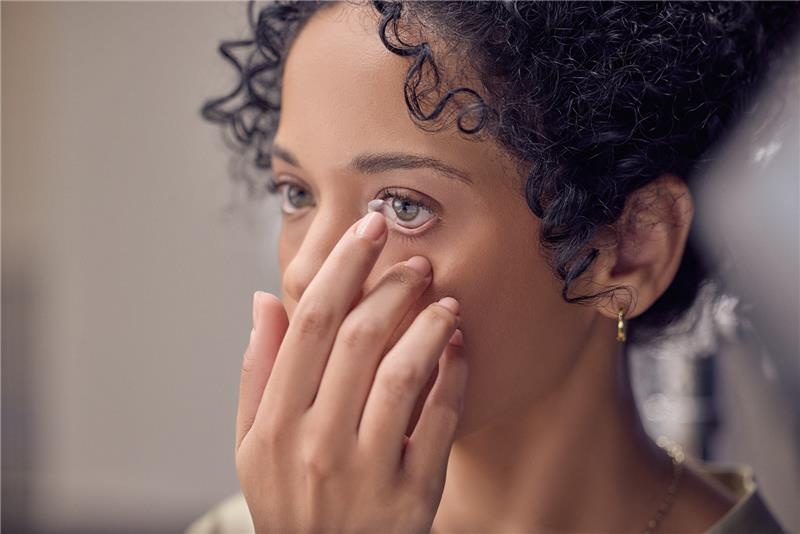High blood pressure, also known as hypertension, is a common yet often overlooked condition that affects millions of people worldwide.
While most people are aware of the risks hypertension poses to heart health, few consider its impact on other parts of the body, particularly the eyes. A question that often arises is: can high blood pressure cause blurry vision?
The straight answer is yes. High blood pressure can cause blurry vision by damaging the small blood vessels in the retina, leading to fluid leakage and swelling. This condition, known as hypertensive retinopathy, can result in various visual disturbances, including blurriness.
This blog post will explore the relationship between high blood pressure and vision, whether hypertension can lead to visual disturbances, including flashing lights, and how it affects overall eye health.
What is High Blood Pressure, and How Does It Affect the Body?
High blood pressure occurs when the force of blood against the artery walls is consistently too high. This condition can lead to serious health problems, including:
- Heart disease
- Heart stroke
- Kidney failure
- Vision Loss
However, the impacts of hypertension extend beyond these more commonly discussed issues.
Hypertension: A Global Health Concern

Hypertension, also known as high blood pressure, is a significant public health issue affecting a staggering 1.28 billion adults worldwide. This translates to roughly two-thirds of individuals aged 30-79 living with this condition, with a disproportionately high burden placed on low- and middle-income countries.
While often referred to as a "silent killer" due to its lack of noticeable symptoms in its early stages, hypertension can silently damage the body over time. Understanding the risk factors and taking preventive measures are crucial to managing this condition effectively.
Key factors contributing to hypertension include:
- Age: Our blood vessels naturally become less elastic as we age, leading to increased blood pressure.
- Genetics: Certain genes can predispose individuals to developing hypertension.
- Diet: A diet high in processed foods, trans fats, and seed oils can contribute to high blood pressure.
- Lack of Physical Activity: Regular physical activity helps maintain healthy blood pressure levels.
- Stress: Poor stress management can lead to the release of hormones that can elevate blood pressure.
By addressing these risk factors and adopting healthy lifestyle choices, individuals can significantly reduce their risk of developing hypertension and its associated complications.
Can High Blood Pressure Cause Flashing Lights in the Eyes?

One of the lesser-known symptoms of hypertension is its effect on vision. Patients with high blood pressure sometimes report seeing flashing lights in their eyes, which can be alarming and confusing.
How Does Hypertension Affect Vision?
High blood pressure can damage the small, delicate blood vessels in the retina, the light-sensitive tissue located at the back of the eye. This condition is known as hypertensive retinopathy. When these blood vessels are damaged, it leads to various visual disturbances, including:
- Flashing lights can occur as early warning sign of imminent retinal detachment.
- Blurry vision: Another common symptom: vision becomes unfocused and hazy.
- Double vision: Seeing two images of a single object.
- Vision loss: In severe cases, prolonged high blood pressure can lead to permanent vision loss.
High Blood Pressure and Vision: The Science Behind It

Hypertensive Retinopathy
Hypertensive retinopathy is a condition that's characterized by damage to the blood vessels in the retina due to high blood pressure. This damage then leads to various symptoms, including but not limited to the appearance of flashing lights.
Stages of Hypertensive Retinopathy
- Mild: Subtle changes in the retinal blood vessels.
- Moderate: Blood vessels become narrowed and blocked, leading to more noticeable symptoms.
- Severe: Blood vessels can leak, leading to swelling and potential vision loss.
Other Eye Conditions Linked to Hypertension
Choroidopathy: Fluid buildup under the retina that can distort vision.
Optic neuropathy: Damage to the optic nerve due to inadequate blood flow, leading to vision loss.
Can High Blood Pressure Cause Blurry Vision?
Blurry vision is another common complaint among individuals with hypertension. The connection between high BP and blurry vision can be attributed to the damage inflicted on the retinal blood vessels. When these vessels are compromised, the retina may not receive adequate blood supply, resulting in blurred vision.
Causes of Blurry Vision Related to Hypertension
- Fluid leakage: Damaged blood vessels can leak fluid into the retina.
- Swelling: Increased pressure can cause blood vessels in the macula (the central part of the retina where 90% of your vision comes from) to swell, leak and bleed. This leads to blurry vision.
- Retinal vein occlusion: Blockage of the outflow of blood from the veins of the retina, causing swelling and leakage of fluid resulting in sudden vision loss.
Does Blood Pressure Affect Vision? The Broader Implications
High blood pressure can significantly impact overall vision health. Beyond flashing lights and blurry vision, there are several other symptoms and conditions associated with hypertension that can affect eyesight.
High Blood Pressure Eye Symptoms
Eye pain: Due to increased pressure in the eye.
Headaches: Often accompanying visual disturbances.
Floaters: Tiny spots or lines that float across the field of vision.
Protecting Your Vision from the Effects of High BP
Maintaining a healthy blood pressure is vital for preserving vision and overall eye health. Here are some strategies to manage blood pressure and reduce the risk of eye problems:
Lifestyle Changes
Adopting a healthy lifestyle is a priority for effectively managing hypertension. This includes choosing the Proper Human Diet that is right for you. A free download of the Proper Human Diet is available at DrBerry.com.
Regular physical activity is also important, as it helps maintain health, weight and reduces stress, which in turn contributes to lower blood pressure.
Additionally, incorporating stress management techniques like meditation, yoga, and deep breathing can be highly beneficial in managing hypertension.
Regular Check-ups
Regular check-ups are important for managing hypertension. This includes frequent blood pressure monitoring at home to ensure it remains within a healthy range.
Regular eye exams and medical eye care are essential for detecting early signs of hypertensive retinopathy and other vision problems that can arise from high blood pressure.
High blood pressure and vision health are intricately linked, and addressing one will significantly impact the other. Stay informed, take proactive steps to manage your blood pressure, and ensure regular eye examinations to keep your vision clear and healthy.
Conclusion: The Vital Connection Between Blood Pressure and Vision

High blood pressure can cause issues like flashing lights in the eyes. It can also create other visual disturbances like blurry vision. Understanding the link between hypertension and vision is crucial for the early detection and prevention of serious eye conditions.
By managing blood pressure through lifestyle changes and regular medical checkups, you can protect your vision and maintain overall health.
By understanding the relationship between high blood pressure and vision, we can better protect our eyes from the harmful effects of this common condition.
Early detection and proper management are vital in preventing severe complications and maintaining healthy, clear vision for years.
Don’t Miss:





